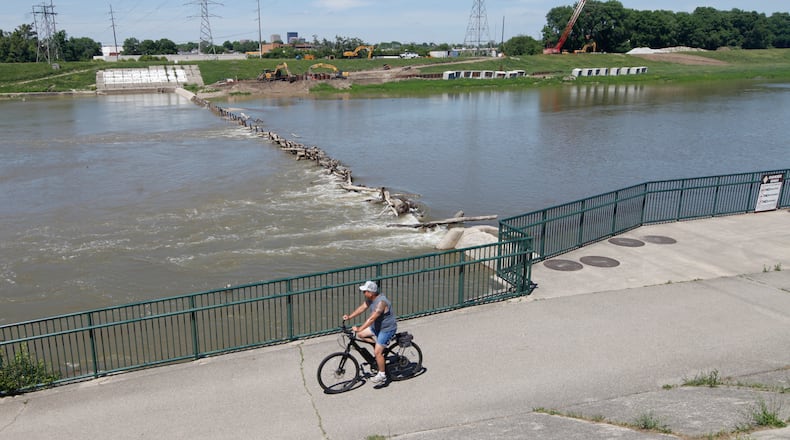The Water Quality and Infrastructure Review was expected to take about nine months, at which time LimnoTech would have given area leaders an understanding of what they are doing well in terms of the water system, areas of improvement and how they should address those areas. However, as the agreement to fund the nearly $100,000 project was being finalized, the state issued a lockdown order and the process was suspended, said Mike Ekberg of the Miami Conservancy District, which is represented on the committee.
The committee members, some of whom head government agencies and healthcare facilities, and are funding the project, turned their attention to the coronavirus pandemic. Still, the committee is committed to completing the study once the crisis is over, said Chairman Tom Raga, a Dayton Power and Light executive.
Reladed: Safe water systems crucial during outbreak
Turner formed the panel in 2019, after two local water emergencies — a 36-inch water main breaking in the middle of the Great Miami River near the Keowee Street Bridge in February, and the Memorial Day tornadoes. Each time, thousands of residents were left without clean drinking water for several days.
The water quality panel is a joint effort that includes the city of Dayton, Montgomery County and regional businesses, institutional and community leaders. Nearly every organization represented on the committee made a financial contribution to pay for LimnoTech’s services, Turner has said.
Related: Rep. Turner’s water quality panel hires consultant to study Dayton-area water
The study will cost $90,000, although committee members pledged $94,000 toward the consulting fee. The three government entities represented on the committee — cities of Dayton and Trotwood and Montgomery County — will contribute a combined $50,000, Raga said in March. Committee members who represent private organizations will pay the remaining $44,000.
Manmade contaminants known as PFAS — polyfluoroalkyl substances — were detected in the the drinking water in Dayton and Wright-Patterson Air Force Base about four years ago. PFAS include various types of substances known as PFOA, PFOS and GenX. Studies suggest that exposure to the chemical might affect pregnancy, increase cholesterol levels and cause some forms of cancer, according to the Centers for Disease Control and Prevention.
Related: Dayton Drinking Water Safety: How healthy is the local aquifer
Dayton has taken steps to address the contaminants as well as its aging water infrastructure, which is more than a century old. Of the $17 million city leaders plan to invest in water infrastructure, $9.5 million will go toward pipes and $5.5 million to the city’s plants, Water Director Michael Powell has said. Since 2013, the city has awarded $175 million in capital projects on the water and sewer system.
About the Author
